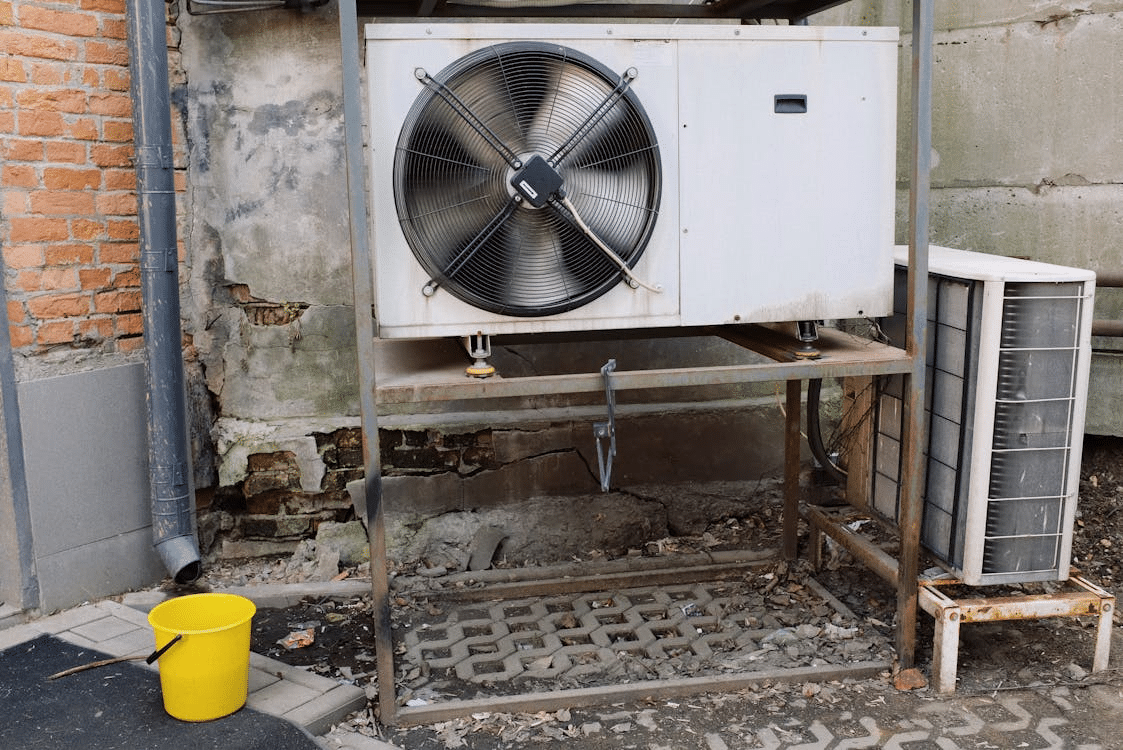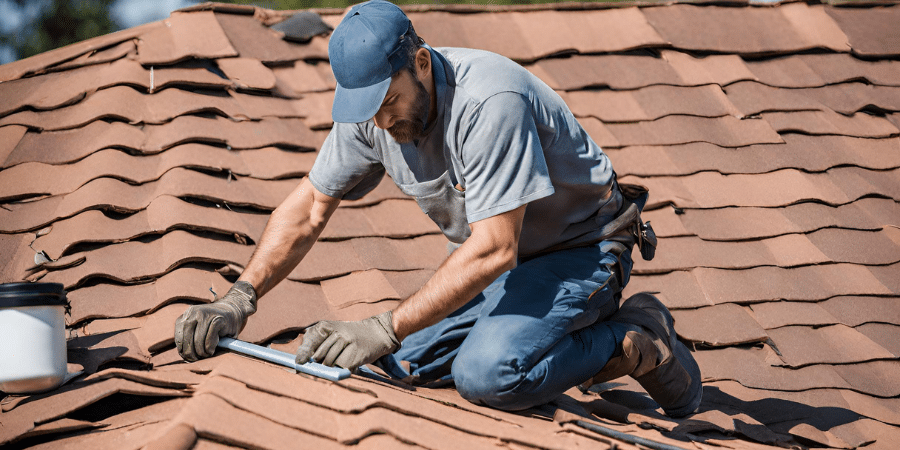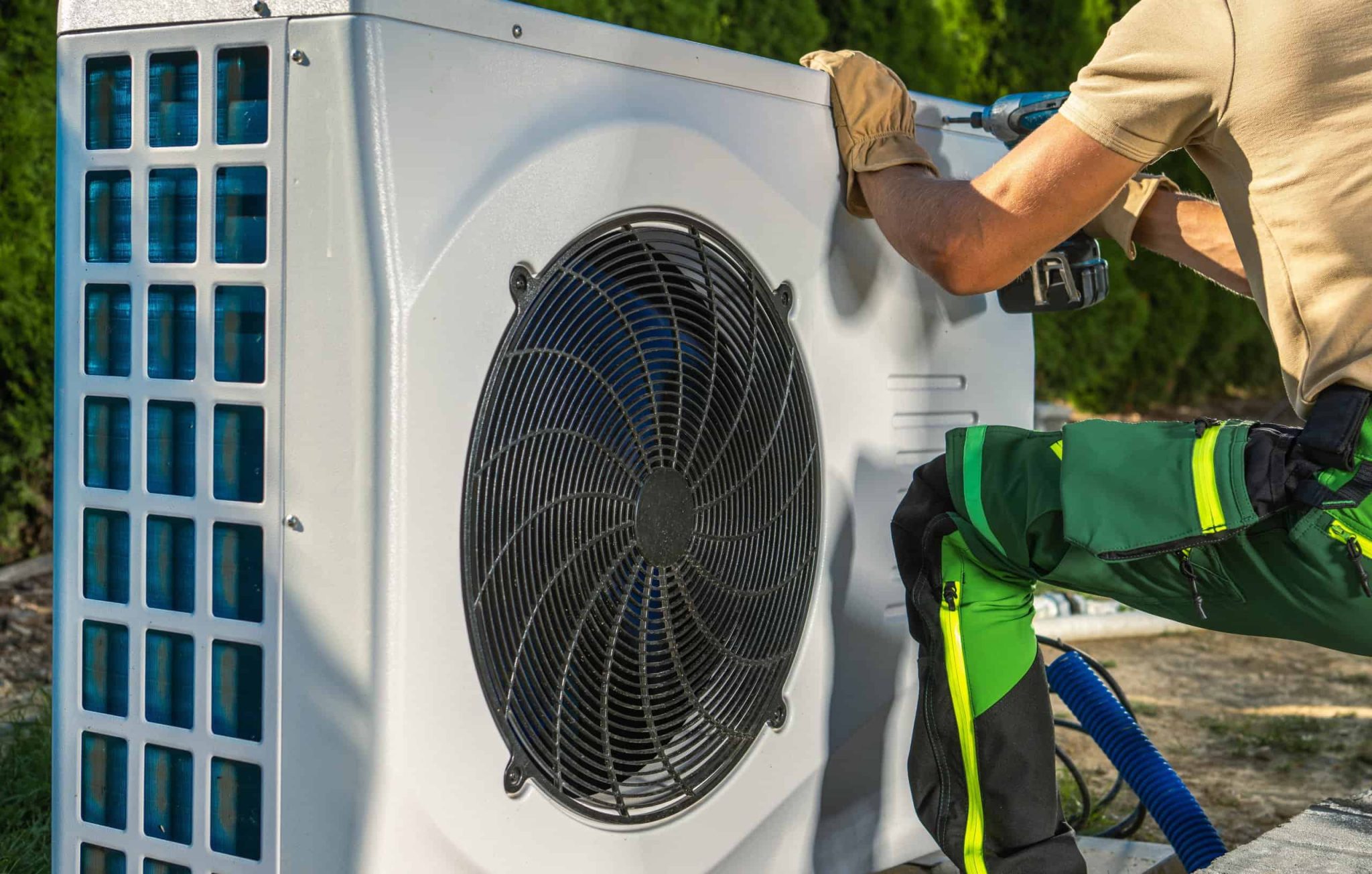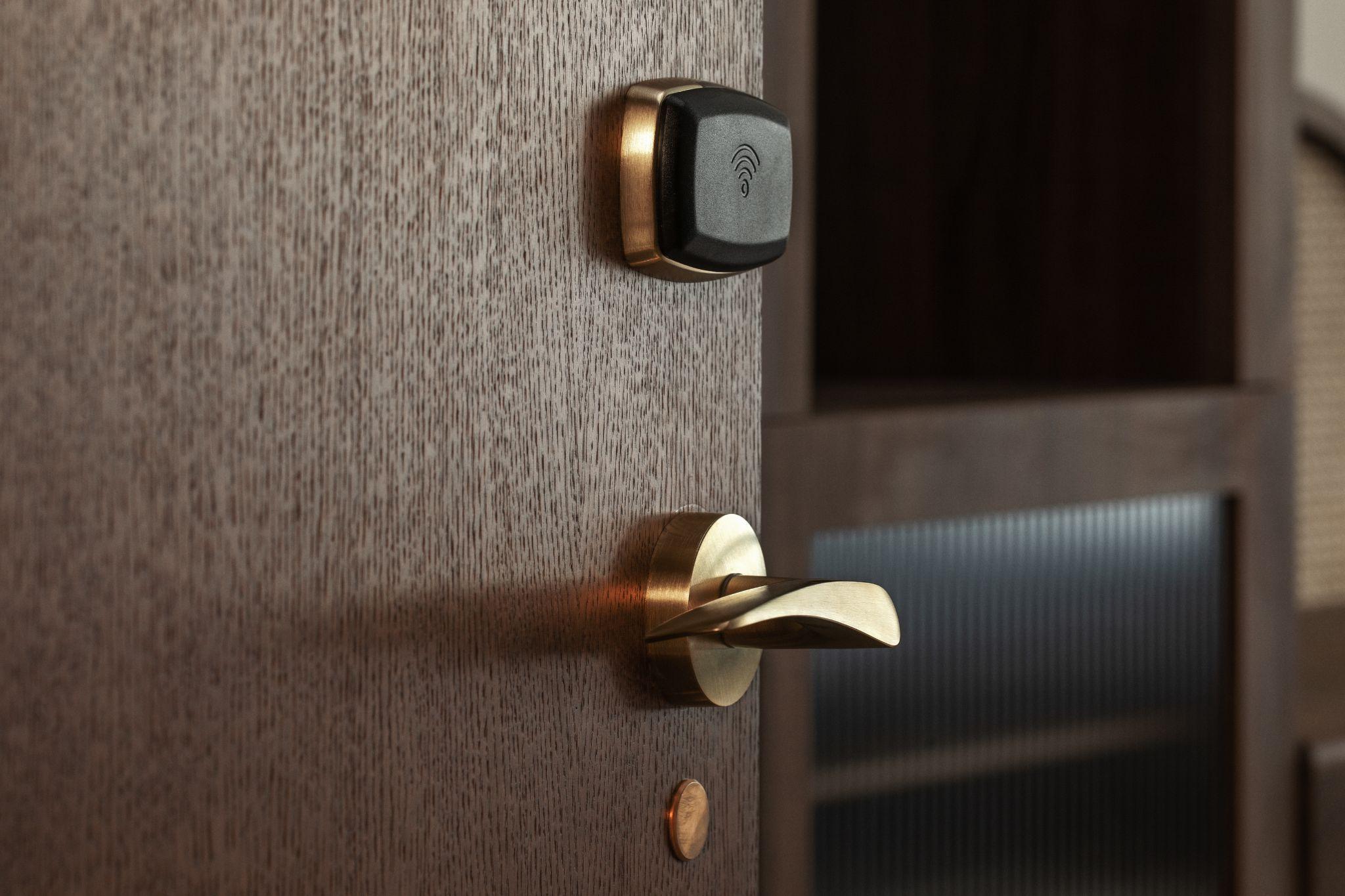What Type of Heat Pump Should I Install on My Property?
Heat pumps are exceptional devices that help homeowners create a comfortable indoor environment every day. These units are more efficient than the traditional fossil fuel-powered systems. Their ability to lower a home’s carbon footprint has made them quite popular among Americans. In fact, over 16% of American homeowners were using these units by November 2023.
The Best Heat Pump to Install on My Property
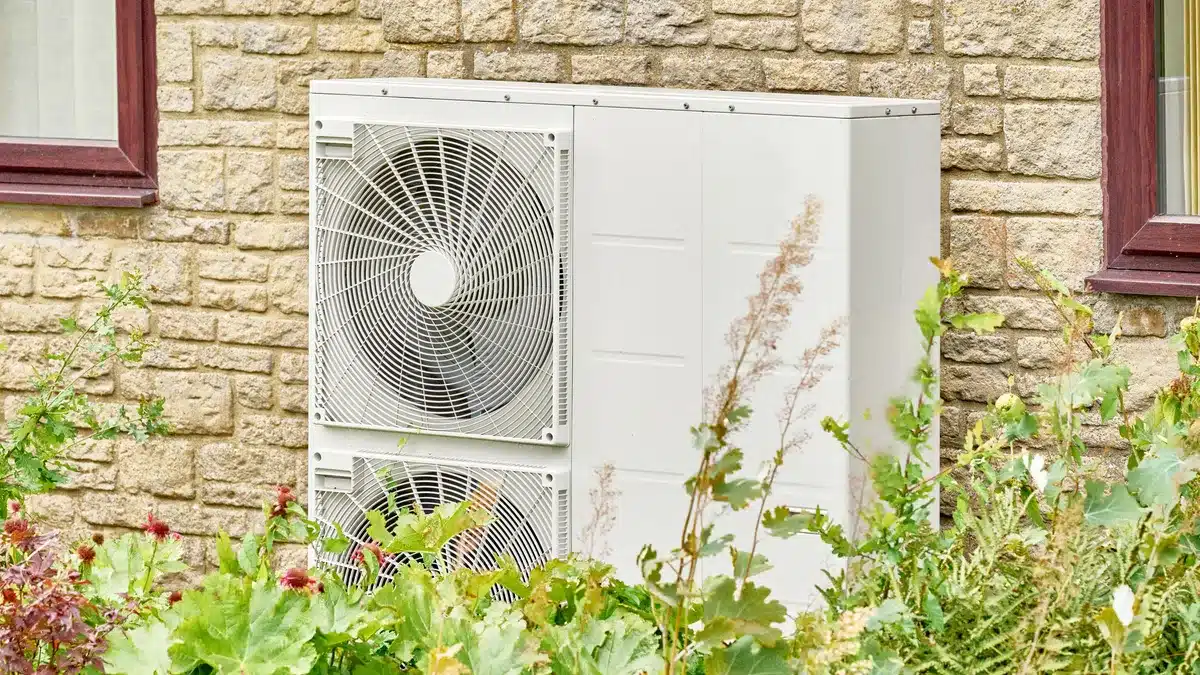
These systems function by moving warm air out while sucking cool air inside when it’s warm outside and vice versa. Depending on a building’s specifics, heat pumps can be categorized as ducted or ductless.
Ductless systems have no duct attachment, making them ideal for homes without air ducts. Instead, they have an indoor head unit linked to an external unit using pipes and wires.
These internal head units can be installed in every room in your home. On the other hand, ducted units can be linked to your home’s air duct, but they use the same outdoor units, like ductless heat pumps.
Types of Heat Pumps
These systems are split into various subtypes besides being categorized as ductless or ducted. Remember, each unit is designed to work with a certain type of building, so knowing more about them will help you narrow your search for the perfect unit.
Air-Source Heat Pump (ASHP)
Air-source heat pumps (ASHPs) are quite popular among American homeowners. These units function by cooling or heating air using a refrigerant pumped on the external unit.
When installed correctly, the ASHP can deliver over three times more heat energy than the electrical energy it uses. It transfers heat instead of converting it from fossil fuels, like other combustion cooling or heating systems.
This heat pump is perfect for small houses in urban regions with proper insulation. Anyone who installs the ASHP system before 2032 is eligible for Federal tax credits of up to $2,000.
There are various types of ASHP units, including single-zone units designed for single rooms with an outdoor condenser. The multi-zone ASHP comes with over two indoor coils that help it cool or heat various rooms simultaneously.
Geothermal Heat Pumps (GHP)
Instead of ambient air, the GHP system uses the ground around or under your home to heat or cool the air. Since the ground’s temperature is way more constant than outside air, this heat pump can lower your electricity bills. The GHP system is ideal for houses in places with wider temperature fluctuations or extreme climates.
However, the installation process can be quite costly. That’s because the heat pump New Jersey installer will require a backhoe to excavate the vertical or horizontal loop fields where they’ll install the pipes.
Despite the high installation price, geothermal heat pumps tend to be more effective since the ground temperature is much more constant. In summer, the ground acts as a thermal storage, absorbing the excess heat in your home. In winter, it serves as a heat source, especially when the air temperature is lower.
Absorption Heat Pumps (AHP)
AHPs are ASHP units that aren’t powered by electricity. They’re powered by alternative heat sources, and most residential AHPs use ammonia-water absorption cycles to provide cooling and heating.
Like all heat pumps, the refrigerant releases heat after condensing in one coil. This reduces the pump’s pressure as the refrigerant evaporates and absorbs heat, leaving your home cool. The only difference between the ASHP and AHP is that the ammonia pressure in the AHP isn’t increased by compressors.
Instead, it’s absorbed into some water, and a low-power pump increases the ammonia pressure by pumping the water. The AHP is ideal for homes without electricity as they can use other energy sources.
Factors to Consider When Purchasing Residential Heat Pumps
These systems use less fossil energy than HVAC, with some using alternative energy sources. Plus, they’re perfect for environmentally conscious individuals, so when selecting a unit for your home, you should consider the following factors.
- The layout and size of your home: Ductless units can be installed in houses of varying sizes, but they’re perfect for homes with open-plan layouts. However, you may have to purchase more indoor or outdoor head units if your house has more rooms.
- The state of your home’s duct: The condition of your air duct can help you determine the type of ducted pump to install. However, a contractor can modify your air duct before installing the right heat pumps for your home.
- Outdoor temperature: Your heating or cooling system should be compatible with your state’s climate. Remember, some systems perform better in colder areas than others.
The ductless design of some units, like the mini-split heat pumps, makes them perfect for homes that don’t have central-ducted heating. However, they can also be a great option for people who are ready to remove the ducting and create more headspace.
Endnote
Unlike an HVAC unit, the heat pump requires less maintenance. In the high-usage months, you’ll have to change or clean the heat pump’s air filter at least once per month.
You’ll only have to replace the filters once during the low-usage months. Most importantly, make sure the area near your unit is blockage-free. This means removing grass, shrubbery, and leaves that may affect your unit.

